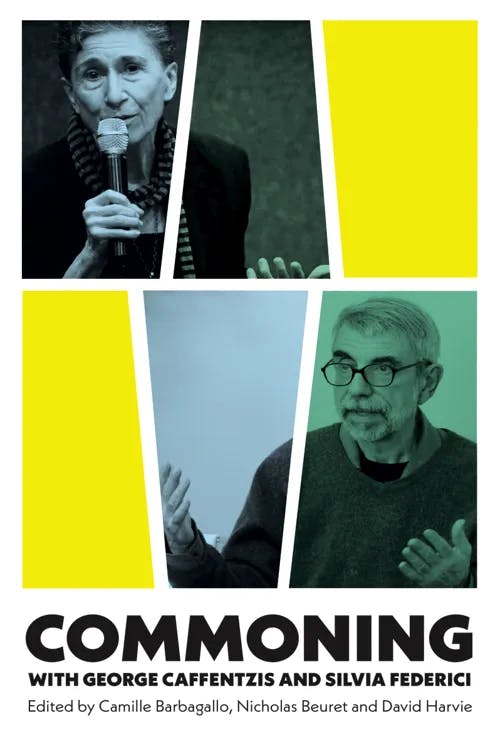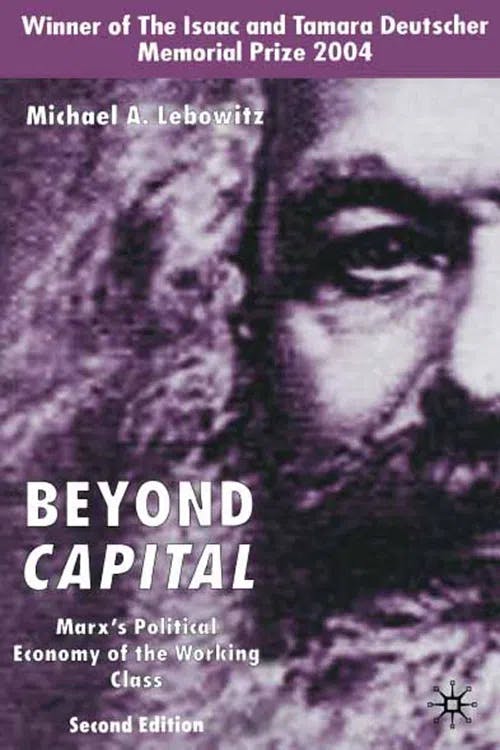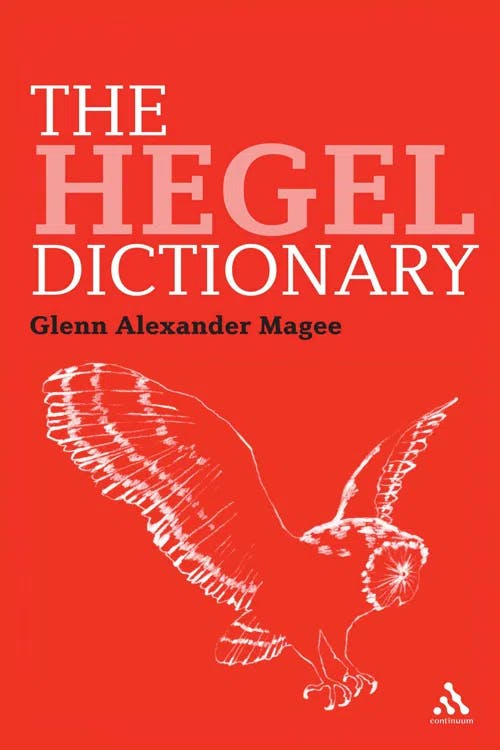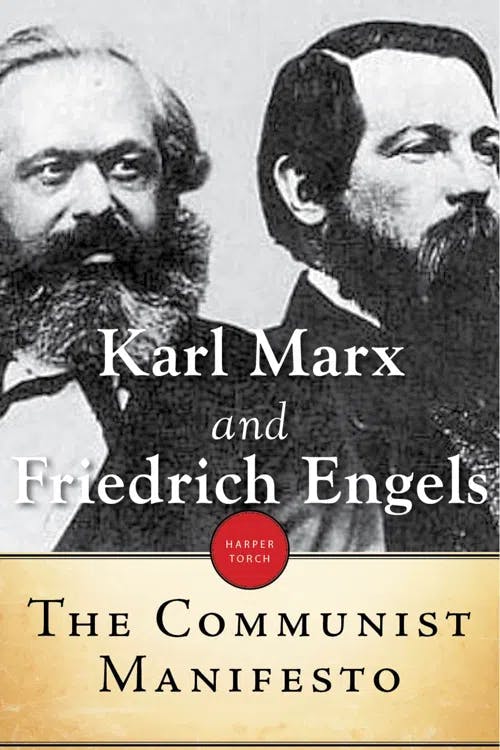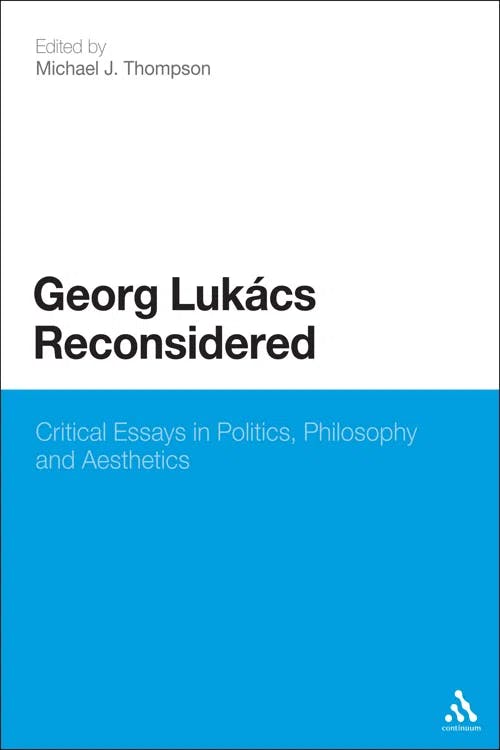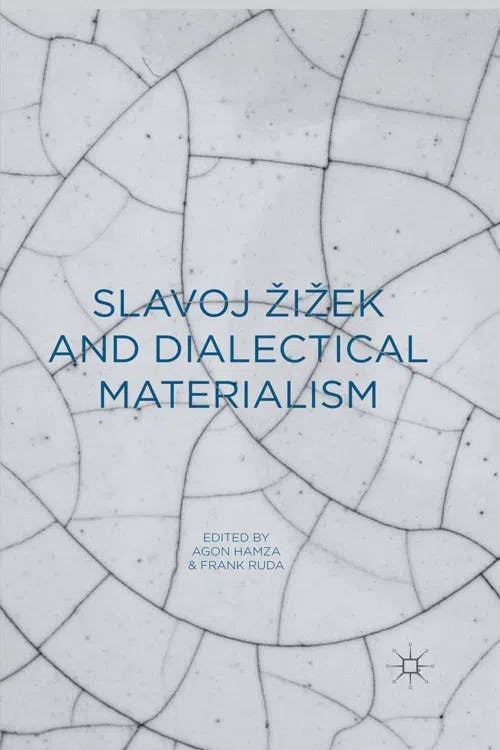What is Dialectical Materialism?
MA, Sociology (Freie Universität Berlin)
Date Published: 11.05.2023,
Last Updated: 01.11.2023
Share this article
Defining dialectical materialism
Dialectical materialism is the most influential philosophical concept that you may have never heard of. In the words of Marxist philosopher George Caffentzis, it describes a method of logic that asserts,
Ideas don’t come from a light-bulb in someone’s brain; ideas come from struggles – this is a basic methodological principle. (2019)
Edited by Camille Barbagallo, Nicholas Beuret, and David Harvie
Ideas don’t come from a light-bulb in someone’s brain; ideas come from struggles – this is a basic methodological principle. (2019)
What may seem like a fairly innocuous statement has had a groundbreaking impact on Western philosophy and even shaped the course of modern history. Taken up by Karl Marx, dialectical materialism offered a radical counterpoint to traditional ideas of the underlying dynamics that shape society. Instead of interpreting developments in history as a series of lightbulb moments, Marx argued that class struggle was the main tectonic force shaping the social landscape. His theoretical intervention helped inspire the Russian Revolution and the making of the USSR. Yet, in the words of Vladimir Lenin himself,
It is impossible completely to understand Marx’s Capital, and especially its first chapter, without having thoroughly studied and understood the whole of Hegel’s Logic. Consequently, half a century later none of the Marxists understood Marx!! (Lenin, 1961, as cited in Lebowitz, Beyond Capital, 2003)
Michael A. Lebowitz
It is impossible completely to understand Marx’s Capital, and especially its first chapter, without having thoroughly studied and understood the whole of Hegel’s Logic. Consequently, half a century later none of the Marxists understood Marx!! (Lenin, 1961, as cited in Lebowitz, Beyond Capital, 2003)
We must, therefore, begin our exploration of dialectical materialism here: in the work of the 19th-century German philosopher, Friedrich Hegel.
Hegelian dialectics
Friedrich Hegel is the figure most strongly associated with developing dialectical materialism as a purely philosophical concept. He was largely inspired by the works of Greek philosophers such as Plato and Aristotle through his observations on their style of debate. Particularly in Hegel’s works like the Science of Logic ([1812], 2014) and The Phenomenology of Spirit ([1807], 2019), he identifies the dialectical back-and-forth present in the dialogues between Parmenides and Aristotle:
For Hegel […] [the] dialectic sets concepts in opposition to each other and reveals their problematic nature; speculation overcomes these dichotomies through a third term that reconciles or transcends their opposition. (Magee, 2010)
Glenn Alexander Magee
For Hegel […] [the] dialectic sets concepts in opposition to each other and reveals their problematic nature; speculation overcomes these dichotomies through a third term that reconciles or transcends their opposition. (Magee, 2010)
Here marks one of the central features of the dialectic: the kind of intellectual tennis match that exists in the context of a debate when two people volley opposing arguments to and fro.
Yet in the above quote, there is something more than the mere struggle between opponents that makes the dialectic important. Hegel was particularly intrigued with how this kind of tension results in a transcendence or evolution of the ideas at hand. For this component of the dialectic, Hegel is heavily indebted to Immanuel Kant for his ideas on how we advance in our comprehension of disparate ideas through applying logic and reason to them.
The result of this process for Kant, and subsequently for Hegel, is encapsulated in the German concept of Aufhebung. Aufhebung is notoriously tricky to translate into English, but it roughly comes across to mean ‘sublation’: the way in which — through the application of reason — our intellectual engagement with simple concepts can lead to more sophisticated levels of understanding. In terms of what this means for the dialectic,
Hegel uses the German verb aufheben to describe how the categories are overcome, but preserved at the same time. […] Aufheben has essentially three meanings: to cancel or abolish, to raise up, and to preserve or retain. (Magee, 2010)
Taking our example of what happens in a debate, ideally the destructive process of argumentation itself motivates opponents to think more deeply and to develop deeper understandings of the topic at hand. You may also notice that the above description of Aufhebung is itself rather contradictory. This speaks to the way in which the struggles and tensions are in themselves instrumental in the evolution of the argumentation process as a whole.
This point brings us to the third and final component of Hegel’s dialectic: the importance of the totality. As outlined thus far, dialectical materialism operates from the stance that the struggles between opposing sides are generative — and, therefore, amount to more than the sum of their individual parts. This is well encapsulated in the following analogy,
A river and the drops in this river. The position of every drop, its relation to the others; its connection with the others; the direction of its movement; its speed; the line of the movement – straight, curved, circular, etc. – upwards, downwards. The sum of the movement … There you have a peu pres [approximately] the picture of the world according to Hegel’s Logic (Lenin, 1961, as cited in Lebowitz, Beyond Capital, 2003)
Thus, dialectical materialists believe that we must consider the interrelated totality of a given phenomenon rather than simply viewing it in terms of disparate parts. Here, we can also begin to see how dialectical materialism might apply to other topics besides abstract arguments or processes of logic. In the next section, we will see how the dialectical concepts of struggle, Aufhebung, and the totality played a vital role in the works of Karl Marx and Friedrich Engels.
Karl Marx, Friedrich Engels & historical materialism
As members of a group of German intellectuals that called themselves the Young Hegelians, Karl Marx and Friedrich Engels were devoted students of his work. In particular, they took the concepts of Hegel’s dialectic outlined above and applied them to their research on the development of capitalist societies. In fact, because they used dialectical materialism as a method for unearthing the roots of historical phenomena, their particular brand of dialectical materialism is often referred to as historical materialism. The following passage offers an overview of how they used the dialectic in this context to arrive at some of their most well-known conclusions,
So, what is that method? Firstly, it is an emphasis on the ‘whole’. Marx’s goal was to understand bourgeois society as a totality, as an interconnected whole. Why? Because, like every other society, it really was such a whole: ‘The production relations of every society form a whole’ (Marx, 1847a: 166) Thus, like ancient society and feudal society before it, bourgeois society was a ‘totality of production relations’: ‘The relations of production in their totality constitute what are called the social relations, society, and, specifically, a society at a definite stage of historical development, a society with a peculiar distinctive character’ (Marx, 1849: 212). (Lebowitz, Beyond Capital, 2003)
This holistic approach to understanding society through the lens of production dynamics was quite different from the standard historical conceptions of the day. In an era heavily impacted by Enlightenment thought, which placed a lot of emphasis on “lightbulb moments” as engines for societal evolution, the centrality Marx and Engels placed on material relations led them to a groundbreaking conclusion.
What Marx and Engels identified in the production relations underpinning any given society were dynamics of struggle between social classes. As laid out in the Communist Manifesto ([1847], 2014),
The history of all hitherto existing society is the history of class struggles. Freeman and slave, patrician and plebeian, lord and serf, guildmaster and journeyman, in a word, oppressor and oppressed, stood in constant opposition to one another, carried on an uninterrupted, now hidden, now open fight, that each time ended, either in the revolutionary reconstitution of society at large, or in the common ruin of the contending classes.
Karl Marx and Friedrich Engels
The history of all hitherto existing society is the history of class struggles. Freeman and slave, patrician and plebeian, lord and serf, guildmaster and journeyman, in a word, oppressor and oppressed, stood in constant opposition to one another, carried on an uninterrupted, now hidden, now open fight, that each time ended, either in the revolutionary reconstitution of society at large, or in the common ruin of the contending classes.
In capitalist societies, Marx and Engels identified this struggle as taking place between capitalists and working class people. From this analysis, they concluded in The Class Struggles in France, 1848-1850 (1964) that, “revolutions are the locomotive of history.” Their work on this topic had significant galvanizing effects, as it caught on across Europe in places like Czarist Russia.
Dialectical materialism and the Soviet Union
Marx’s work had a deep influence on the Bolsheviks, to the extent that it played a notable role in the revolutionary theory that went into spurring the Russian Revolution. In particular, Marx’s analysis of class struggle — as derived from historical materialism — inspired key figures like Lenin and Stalin. Moreover, dialectical materialism also had an impact on the philosophical and cultural currents in the Soviet Union; becoming a central dogma in Marxist-Leninist thought as it was conceived under the regime.
Vladimir Lenin
Lenin was a devoted scholar of both Hegel and Marx, and he famously sought to bring dialectical materialist theory into practice through revolutionary struggle. This is evident in his writings, such as his classic work Materialism and Empirio-Criticism (1908). In terms of the radical influence that Marx and Engels had on Lenin’s thinking, Lebowitz explains that,
[…] as Engels (1956: 34) and Lenin (1967: 163) stressed, ‘placing the theoretical struggle on a par’ with political and economic struggles is essential. In emphasizing the importance of this point, we simply acknowledge the integral link between theory and practice that Marx understood as a condition for the transcendence of capital. (2003)
Michael A. Lebowitz
[…] as Engels (1956: 34) and Lenin (1967: 163) stressed, ‘placing the theoretical struggle on a par’ with political and economic struggles is essential. In emphasizing the importance of this point, we simply acknowledge the integral link between theory and practice that Marx understood as a condition for the transcendence of capital. (2003)
In this way, Lenin’s thinking is often regarded as a highly deterministic iteration of dialectical materialism. In particular, he took Marx and Engels’ analysis on the dialectic of class struggle as an impetus to lead the Bolshevik army in overthrowing the Czar through the Russian Revolution in 1917. This staunch determinist interpretation of dialectical materialism remained salient in much of Soviet dogma thereafter.
Joseph Stalin
As the USSR became institutionalized, dialectical materialism was instantiated as an official philosophical doctrine of the regime. This was formalized with the publication of Stalin’s book, Dialectical and Historical Materialism (1938), where we can see that a deterministic iteration of this method continued to shape Soviet accounts of history and society,
The demand for a bourgeois-democratic republic when tsardom and bourgeois society existed, as, let us say, in Russia in 1905, was a quite understandable, proper and revolutionary demand; for at that time a bourgeois republic would have meant a step forward. But now, under the conditions of the U.S.S.R., the demand for a bourgeois- democratic republic would be a senseless and counterrevolutionary demand; for a bourgeois republic would be a retrograde step compared with the Soviet republic.
The book was published as Stalin was consolidating his power and purging the party of members he viewed as disloyal to his reign. Adherence to dialectical materialism, as he understood it, was even the basis for such action. The idea of this highly deterministic, orthodox vision of dialectical materialism as being quintessential to Marxist-Leninist thought also inculcated the 1936 Constitution of the Soviet Union. That said, it was not without its critics.
Georg Lukács
One influential opponent of the Soviet Union’s official doctrine of dialectical materialism was Hungarian philosopher Georg Lukács. He was particularly galvanized in developing his critique due to the ways in which the Soviet Union attempted to control cultural production in the name of centering dialectical materialism in all areas of intellectual life. In his 1923 book, History and Class Consciousness, Lukács presented what was regarded at the time as a revisionist view of dialectical materialism. In George Lukács Reconsidered (2011), Tom Rockmore highlights Lukács’ stance as put forth in his own words,
Orthodox Marxism [...] does not imply the uncritical acceptance of the results of Marx’s investigations. It is not the ‘belief’ in this or that thesis, nor the exegesis of a ‘sacred’ book. On the contrary, orthodoxy refers exclusively to method. It is the scientific conviction that dialectical materialism is the road to truth and that is methods can be developed, expanded and deepened only along the lines laid down by its founders. (Lukács, as cited by Rockmore)
Edited by Michael J. Thompson
Orthodox Marxism [...] does not imply the uncritical acceptance of the results of Marx’s investigations. It is not the ‘belief’ in this or that thesis, nor the exegesis of a ‘sacred’ book. On the contrary, orthodoxy refers exclusively to method. It is the scientific conviction that dialectical materialism is the road to truth and that is methods can be developed, expanded and deepened only along the lines laid down by its founders. (Lukács, as cited by Rockmore)
Thus, unlike the ways in which dialectical materialism had become institutionalized under the USSR and used towards ends of political repression, Lukács wanted to bring it back to its philosophical roots as a method for arriving at deeper truths about the phenomena to which it is applied.
While Lukács may have made a name for himself as a critic of Soviet dogma, he ultimately made a self-criticism in the 1950s and renounced his stance in order to remain in good favor with the Communist Party of the day. Still, his writings on Marx have been highly influential. This is particularly true in terms of inspiring Western Marxism, a revisionist branch that draws on the philosophical contributions of Marx and Engels in their own right rather than as part of the Soviet political program. Western Marxist thinkers include Louis Althusser and the Frankfurt School who have, among other things, applied dialectical materialism to disciplines like psychoanalysis.
21st-century dialectical materialism and the end of history?
Despite its Western splinter factions, much of Marxist thought remained under the Soviet shadow throughout the course of the 20th century. Particularly with the collapse of the Soviet Union, Marxist thinking had fallen out of fashion to say the least. Relatedly, Francis Fukuyama famously declared that this collapse signaled the “end of history”, referring to the end of dialectical struggles between capitalism and communism. As we have moved into the 21st-century, however, the concept of dialectical materialism has experienced a resurgence of interest and is prevalent in the disciplines of political economy, philosophy, and Marxist feminism.
Slavoj Žižek
One of the preeminent living scholars to revive dialectical materialism in both its Hegelian roots and Marxist iterations is Slavoj Žižek. A controversial but prominent public intellectual, he has written numerous books on Hegelian dialectical thought such as, Less Than Nothing: Hegel and the Shadow of Dialectical Materialism (2013) and Absolute Recoil: Towards A New Foundation Of Dialectical Materialism (2014). Of Žižek’s revitalization of Hegel’s work, Agon Hamza writes,
Žižek does not simply return to Hegel. His return has the form of repetition, a repetition which is not repeating the same, but rather a repetition of the Hegelian gesture. Why does Žižek need to repeat Hegel in order to rethink dialectical materialism? Or, why does every materialism worthy of a name return to (and repeat) Hegel? The “return to Hegel” is necessary for the field of possibility for thinking. With the return to the Hegelian dialectic, we are able to think the unconscious, class struggle, scientific creativity, political radicalism, and so on. (2016)
Edited by Agon Hamza and Frank Ruda
Žižek does not simply return to Hegel. His return has the form of repetition, a repetition which is not repeating the same, but rather a repetition of the Hegelian gesture. Why does Žižek need to repeat Hegel in order to rethink dialectical materialism? Or, why does every materialism worthy of a name return to (and repeat) Hegel? The “return to Hegel” is necessary for the field of possibility for thinking. With the return to the Hegelian dialectic, we are able to think the unconscious, class struggle, scientific creativity, political radicalism, and so on. (2016)
In other words, Žižek’s revival of Hegelian dialectics in the spirit of Lukács has contributed to the dusting off of its Soviet cobwebs — returning it to the method that can help us arrive at deeper insights about current crises of capitalism and more. Žižek’s work on the dialectic has been especially inspiring in contemporary analyses of neoliberalism. He has, for instance, influenced thinkers like Mark Fisher who, in his book, Capitalist Realism (2022), plays with the dialectic between capitalist realism and our ability to conceive of alternative imaginaries. Such is summarized in the adage, often attributed to Žižek but made famous in Capitalist Realism, that “it’s easier to imagine the end of the world than the end of capitalism.”
Closing thoughts
Dialectical materialism is a philosophical method associated with Friedrich Hegel, which examines phenomena in their totality. It operates from the standpoint that nature, logic, or any particular object of inquiry is fundamentally shaped through their interrelatedness with other things. Of particular interest to those who employ this method is the evolutionary potential of tensions and contradictions that lead to higher forms of thought and propel history forward.
Marx and Engels were heavily influenced by Hegel’s work, and applied his method to understand the underlying material forces that drive society. According to their historical materialist approach, they argued that struggles between classes functioned as the “locomotive of history” (1848–1850 [1964]) and strived to understand the ways in which specific historical events amalgamated to produce capitalist society. Their ideas were taken up by the Bolsheviks, and Lenin himself was a scholar of both Marx and Hegel.
In turn, dialectical materialism as a theory took on a more deterministic character as it helped inspire Lenin in the making of the Russian Revolution, which gave rise to the Soviet Union and altered the course of global history. Under Stalin, dialectical materialism was established as the official philosophical doctrine of the Soviet Union and heavily shaped the kinds of intellectual and cultural production permitted under the regime. Thinkers such as Georg Lukács, however, fought to bring dialectical materialism back to its methodological roots.
Lukács’ re-emphasis on dialectical materialism as a method rather than a political dogma propagated a new current of Western Marxist thought taken up by the likes of Louis Althusser, the Frankfurt School, and more recently Slavoj Žižek. Today, the method of dialectical materialism continues to feature in a range of disciplines including philosophy, political economy, and psychoanalysis. It provides a rigorous and salient framework for understanding the origins of complex ideas and processes of social change.
Further reading on Perlego
Dowling, W.C. (2020) Jameson, Althusser, Marx. Routledge. Available at: https://www.perlego.com/book/1629804/jameson-althusser-marx-rle-marxism-an-introduction-to-the-political-unconscious-pdf
Gordon, et al. (2018) The Routledge Companion to the Frankfurt School. Routledge. Available at: https://www.perlego.com/book/1520544/the-routledge-companion-to-the-frankfurt-school-pdf
Johnston, A. (2018) A New German Idealism. Columbia University Press. Available at: https://www.perlego.com/book/773827/a-new-german-idealism-hegel-iek-and-dialectical-materialism-pdf
Marx, K. (1867 [2012]) Das Kapital. Gateway Editions. Available at: https://www.perlego.com/book/784600/das-kapital-a-critique-of-political-economy-pdf
Westerman, R. (2018) Lukács's Phenomenology of Capitalism. Palgrave Macmillan. Available at: https://www.perlego.com/book/3491018/lukcss-phenomenology-of-capitalism-reification-revalued-pdf
Dialectical materialism FAQs
What is dialectical materialism in simple terms?
What is dialectical materialism in simple terms?
What is an example of dialectical materialism?
What is an example of dialectical materialism?
Who are scholars associated with dialectical materialism?
Who are scholars associated with dialectical materialism?
Bibliography
Barbagallo, C. et al. (2019) Commoning with George Caffentzis and Silvia Federici. Pluto Press. Available at: https://www.perlego.com/book/969312/commoning-with-george-caffentzis-and-silvia-federici-pdf
Fisher, M. (2009) Capitalist Realism. Zero Books.
Fukuyama, F. (2006) End of History and the Last Man. Free Press. Available at: https://www.perlego.com/book/780488/end-of-history-and-the-last-man-pdf
Hegel, G. W. F. ([1812], 2014) Science of Logic. Routledge. Available at: https://www.perlego.com/book/1664940/science-of-logic-pdf
Hegel, G. W. F. et al. ([1807], 2019) The Phenomenology of Spirit. University of Notre Dame Press. Available at: https://www.perlego.com/book/1110604/the-phenomenology-of-spirit-pdf
La Berge, et al. (2014) Reading Capitalist Realism. University of Iowa Press. Available at: https://www.perlego.com/book/2855745/reading-capitalist-realism-pdf
Lebowitz, M. (2003) Beyond Capital. Palgrave Macmillan. Available at: https://www.perlego.com/book/3496702/beyond-capital-marxs-political-economy-of-the-working-class-pdf
Lenin, V. (1927) Materialism and Empirio-Criticism: Critical Comments on a Reactionary Philosophy. International.
Magee, G.A. (2010) The Hegel Dictionary. Continuum. Available at: https://www.perlego.com/book/805861/the-hegel-dictionary-pdf
Marx K. (1964) The Class Struggles in France (1848-1850). International.
Marx, K. & Engels F. ([1847], 2014) Communist Manifesto. HarperTorch. Available at: https://www.perlego.com/book/602671/the-communist-manifesto-pdf
Meszaros, I. (2016) Aspects of History and Class Consciousness. Routledge. Available at: https://www.perlego.com/book/1640303/aspects-of-history-and-class-consciousness-pdf
Stalin, J. (1940) Dialectical and Historical Materialism. International.
Thompson, M. (ed.) (2011) Georg Lukács Reconsidered. Continuum. Available at: https://www.perlego.com/book/806877/georg-lukacs-reconsidered-critical-essays-in-politics-philosophy-and-aesthetics-pdf
Žižek, S. (2013) Less Than Nothing: Hegel and the Shadow of Dialectical Materialism. Verso UK. Available at: https://www.perlego.com/book/731171/less-than-nothing-hegel-and-the-shadow-of-dialectical-materialism-pdf
Žižek, S. (2014) Absolute Recoil: Towards A New Foundation Of Dialectical Materialism. Verso UK. Available at: https://www.perlego.com/book/730976/absolute-recoil-towards-a-new-foundation-of-dialectical-materialism-pdf
MA, Sociology (Freie Universität Berlin)
Lily Cichanowicz has a master's degree in Sociology from Freie Universität Berlin and a dual bachelor's degree from Cornell University in Sociology and International Development. Her research interests include political economy, labor, and social movements. Her master's thesis focused on the labor shortages in the food service industry following the Covid-19 pandemic.

